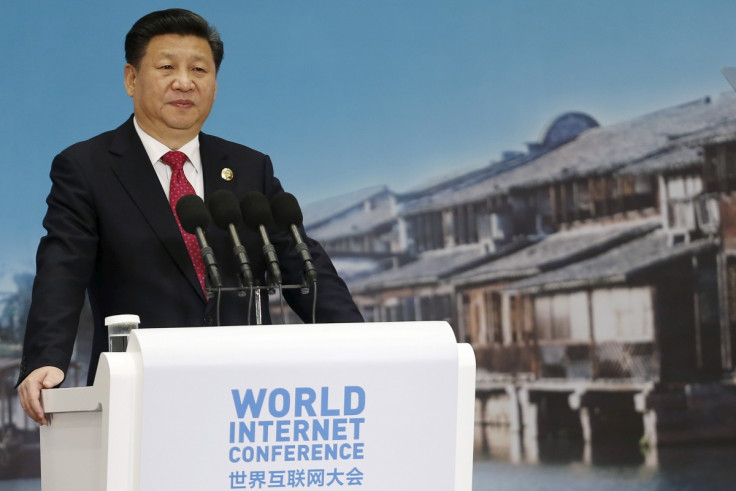President Xi defends China's internet controls and slams double standards in cyberspace management

President Xi Jinping has slammed the double standards in global cyberspace management, saying that the present governance rules hardly reflected the interests of most countries. Delivering a keynote speech at the World Internet Conference in Wuzhen, Zhejiang province, he also strongly defended China's internet controls.
China has come under criticism for its strong controls on the use of the internet in the country as well as for banning several social media sites and news portals. Xi however said that there is a need for a balance between "order" and freedom of expression. He stressed that countries had the right to choose their own set of rules.
"Cyberspace is not a place beyond the rule of law. While respecting internet users' rights to exchange ideas and express their views, efforts should be made to build a sound cyberspace order under the law so as to protect the legitimate rights and interests of all internet users," he said.
He continued: "There should be no internet hegemony. No interference in another country's internal affairs. No engagement in tolerating or supporting internet activities that damage another country's national security,
The president stressed: "We should respect other countries' rights to peaceful involvement in international cyberspace governance, including their choices of internet development, regulation and public policies."
Xi said China fully backed the drawing up of an international treaty on cyber-counterterrorism and was opposed to the cyber-arms race, which has seen countries use the internet to carry out espionage and disrupt other states' communications.
Although he did not directly refer to revelations made by whistle-blower Edward Snowden that the US National Security Agency had carried out global surveillance programmes that went as far as bugging the telephones of leaders of states, observers note that China is increasingly concerned over cyber security governance.
"There has been no international cyberspace governance and China is emphasising [the need] to create one because it affects its core interests," Professor He Qisong at the Shanghai University of Political Science and Law said. "Ultimately, Beijing is concerned that the internet will be used to start a revolution that could threaten its regime," he added.
Wang Chunhui, the director of the Institute of China ICT Development and Strategy in the Nanjing University of Posts and Telecommunications, said China hopes to break the US dominance in cyberspace and establish a new order that would respect Chinese core interests.
Wang highlighted the fact that the 13 root name servers - which are the first step in translating readable host names into Internet Protocol (IP) addresses - were under US control, which effectively made the interests of China and other countries' vulnerable.
© Copyright IBTimes 2024. All rights reserved.






